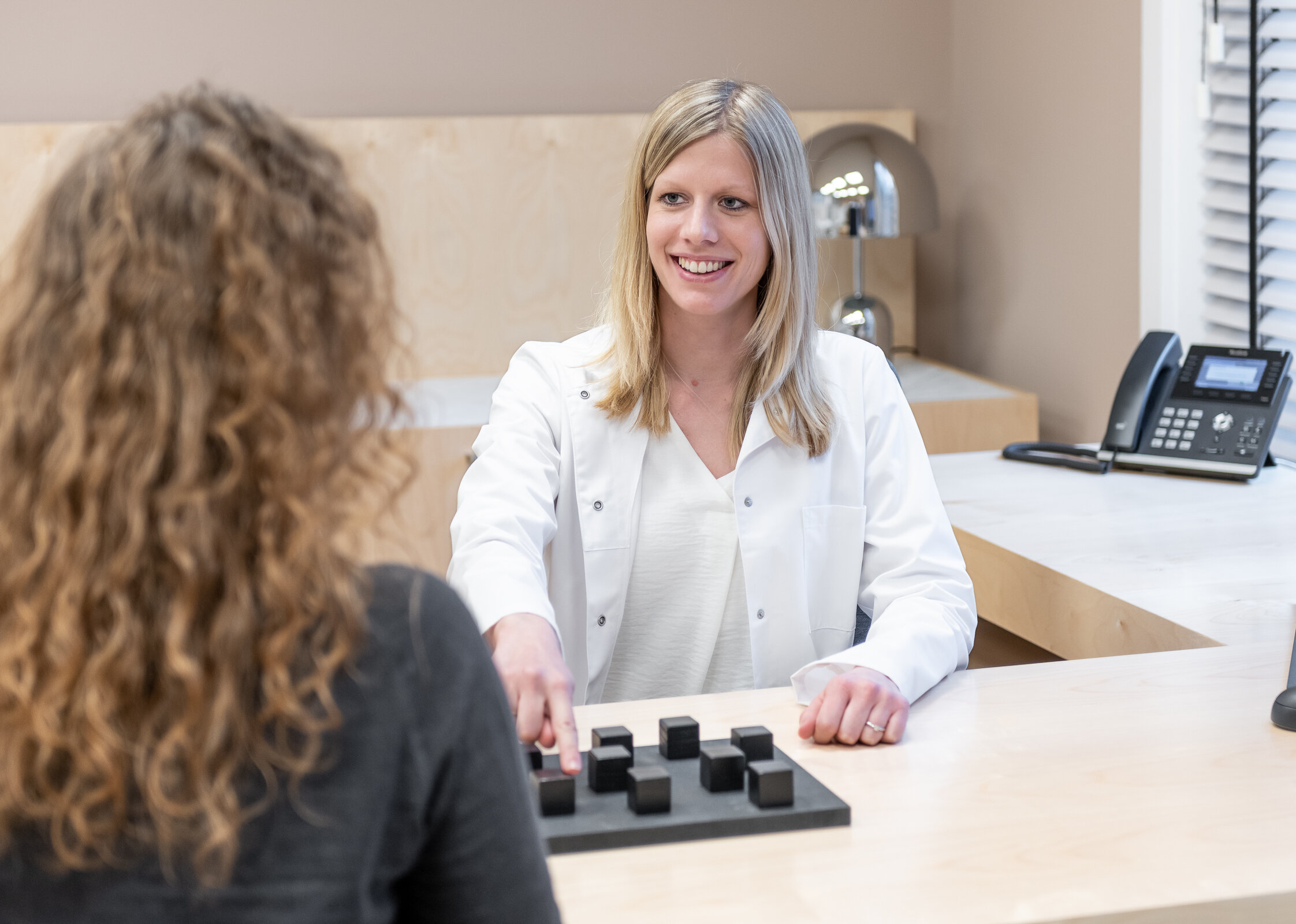Center for Neuropsychology
Book an appointmentConditions We Treat
Bellevue Medical Group offers interdisciplinary competence at the highest level. We operate specialized centers with state-of-the-art technology and diagnostics.
Neuropsychology is an interdisciplinary field which requires close collaboration of different specialties. To meet this need, neuropsychologists at our outpatient locations work hand in hand with specialists from neurology, psychiatry, radiology, and gerontology within the Bellevue Medical Group network. This ensures rapid and comprehensive diagnostics and individualized treatment options.
We offer comprehensive neuropsychological diagnostics for various conditions.
Our core focus areas include:
- Somatic diseases affecting the brain (e.g. brain tumors, multiple sclerosis, epilepsy and endocrine disorders)
- Neurodegenerative diseases (including Alzheimer’s disease, vascular dementias, and frontotemporal lobar degeneration)
- Acquired brain damage (e.g., insults and traumatic brain injury)
- Cognitive impairments associated with psychiatric disorders (e.g., affective disorders, addictive disorders, and schizophrenias)
- Neural and mental development disorders (e.g. autism spectrum disorder)
- Hyperkinetic disorders (including ADHD and ADD
- medical ADHD assessment
Our Additional Services
Neuropsychology deals with the functions of the brain, such as thinking abilities (or intelligence), attention, memory, language abilities, motor skills, personality/behavioral changes, emotional disorders, and visual perception disorders. At our specialized center for neuropsychology, we are able to diagnose and treat impairments of brain functions and deficits in performance. These may occur, for example, after a stroke, brain hemorrhage, tumor disease, or in parallel with inflammatory and brain degenerative processes (multiple sclerosis, Parkinson’s disease, dementia, etc.).
In the case of attention deficit hyperactivity disorder (ADHD), assessing inattention, hyperactivity, and impulsivity are the main focus. Those affected are easily distracted, have a short attention span, and have difficulty concentrating. They often feel restless inside and are excessively active. They react impulsively and may suffer from strong mood swings. People with an autism spectrum disorder have difficulty communicating with other people or maintaining relationships, empathizing with others, or understanding irony or sarcasm. ADHD and autism spectrum disorders are innate disorders that are often diagnosed too late. Left untreated, they can have adverse effects on educational performance, career progression, or on relationships. We therefore offer our ADHD and autism special consultations to affected individuals.
What can patients expect at the ADHD and autism consultations, and what is examined?
Our ADHD and autism special consultations are aimed at adolescents as well as adults. The aim of the diagnosis is a better assessment of one’s own strengths and weaknesses. The examination takes several hours and includes the following points:
- Personal conversation with questions about the current situation, early childhood development, and schooling.
- Diagnostics according to clinically and scientifically established procedures such as interviews and questionnaires.
- Neuropsychological tasks focusing on attention, action planning, social cognition, intelligence, and memory using pencil/paper tasks and computer-based assessments.
- Individual results discussion with identification of strengths and weaknesses and recommendations for effective therapy options.
Our Team Remains at your Disposal
Head of Administration
Ievgeniia Giordano
Medical Secretaries / MPA
Saphira Felix
Sarah Schifferle
Our Locations
Neurocenter Horgen
Asylstrasse 19
8810 Horgen
+41 43 244 15 30
Neurocenter Basel
Messeturm, 18. OG
4058 Basel
+41 61 205 29 50
Neurocenter St. Gallen
Brauerstrasse 97,
Haus M1,
9016 St. Gallen
+41 71 282 16 80
Neurocenter Baden
Kurplatz 1
5400 Baden
+41 56 203 22 22
Neurocenter for Neuropsychologie
Neurozentrum Opera
Gottfried-Keller-Strasse 7
8001 Zürich
+41 43 300 62 33
Neurocenter Uster
Winterthurstrasse 18A
8610 Uster
+41 44 942 31 41




